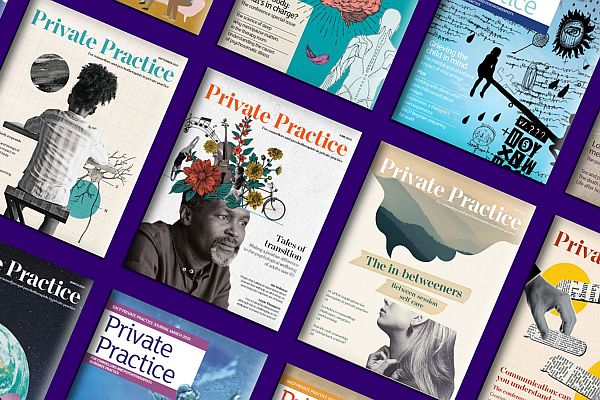Those of you who work in FE and HE will be rolling your sleeves up and taking a deep breath for the start of a new academic year. The summer’s often time to take a break and recharge batteries. But I know this year has been different. With most services continuing to operate virtually, this has meant students can access counselling from home, away from the campus. In most cases, this has meant that more students will have engaged with services who might not have otherwise.
The pandemic has been a nightmare for so many people in so many ways yet adapting and meeting service needs in creative and innovative ways has offered new opportunities which didn’t exist before. So, offering a summer service virtually has extended provision beyond the norm. If everything was to return to normal (who knows), I suspect this summer virtual provision might continue going forward.
However, while great for students, it can and does place an extra burden on the counselling staff, especially when some services traditionally reduce cover over the summer. I hope institutions, and Government, hear the call for increased staffing investment, particularly over summer.
BACP has done a great job lobbying Government for greater resources. In Scotland, we’re very lucky that the Scottish Government has indeed committed to an extra £4.2 million over four years. This is making a huge difference for all concerned. Indeed, further funding has since been released here for mental health and wellbeing support.
The September issue features a mix of fascinating articles. I’m delighted to welcome Turkan Dogan who discusses the unique generational challenges for students being part of the Internet Generation in I-Gen: how context drives mental health. It’s perhaps strange to think that the vast majority of new undergraduates starting FE/HE this year will have been born in a different century to most of us. Whether you’re part of the ‘Baby-Boomers’, ‘Generation X’ (like me) or ‘Generation Y’, we will have faced our own particular demands of the era.
While each generation grapples with the developments of the day, students with particular mental health challenges have their own rivers to cross. I’m really grateful to Nicky Toor and Terry Hanley, who reflect on their important recent research, which explored how FE/HE counselling services can better prepare for and counsel students with autism in Nobody wants to be counselled by a robot.
Thanks also to Charles Gordon-Graham who, as a counselling tutor, shares how he waded through the pandemic restrictions and limitations, to provide an effective and meaningful training experience for student counsellors in Teaching counselling remotely.
Wellbeing and self-care have been high on the agenda during the pandemic, and I know that it’s not just students who have struggled. We need to be able to access appropriate and timely support when we need it, so we can better manage our demanding roles. In this respect, I’m pleased to present a fascinating pilot study, co-funded by BACP and the Association of Colleges, which tracked the supervision of mainly pastoral staff across 21 further education and six form colleges. Many thanks to Jo Holmes and Steve Page for How pastoral workers in Greater Manchester further education and sixth form colleges are benefitting from supervision.
I hope you have had a chance to recover, recuperate and rejuvenate over the summer and I wish you well for the forthcoming new academic year.
Read more...

University and College Counselling
For counsellors and psychotherapists in further and higher education. The quarterly professional journal of BACP Universities and Colleges division.

BACP Universities and Colleges division
BACP UC is a specialist division for those involved in the management and delivery of counselling services in FE and HE.

Blogs and vlogs 2021
News, views and updates from our staff, members and counselling clients
Views expressed in this article are the views of the writer and not necessarily the views of BACP. Publication does not imply endorsement of the writer’s views. Reasonable care has been taken to avoid errors but no liability will be accepted for any errors that may occur.
